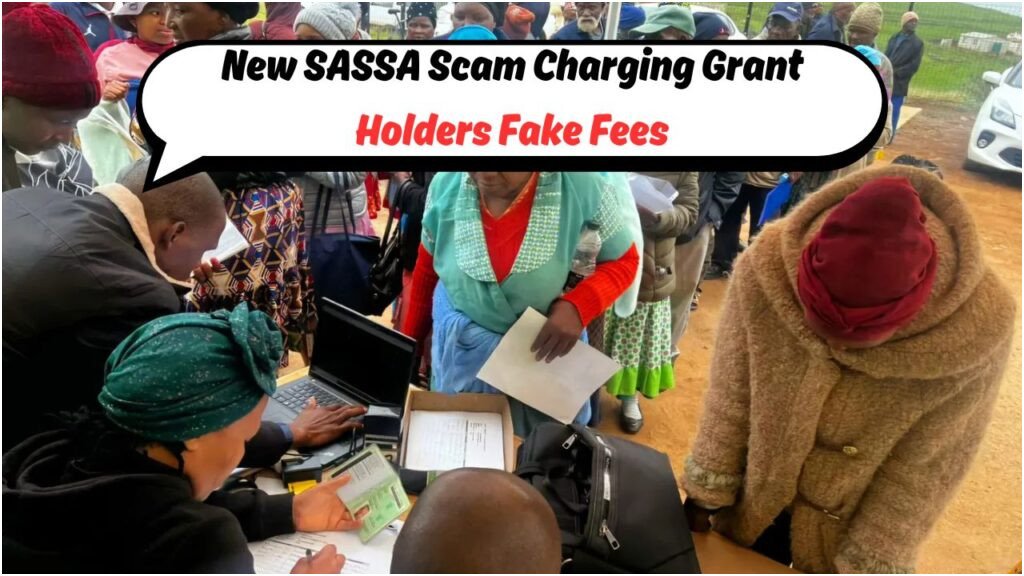Fake SASSA Agents Scamming Thousands: In recent times, South Africa has seen a surge in fraudulent activities targeting the vulnerable, particularly involving fake SASSA agents. These scammers are deceitfully demanding registration fees, exploiting those in dire need of social grants. It is crucial for citizens to be informed and vigilant to protect themselves from these unscrupulous acts. The South African Social Security Agency (SASSA) has repeatedly emphasized that no legitimate agent will ask for money to process applications. Awareness and education are key in combatting these scams.
How to Identify Fake SASSA Agents Scamming the Public
Spotting a fraudulent SASSA agent can be challenging but not impossible. These con artists often employ sophisticated tactics to appear genuine. Here are some red flags to watch for:
- Requests for upfront payment or registration fees.
- Lack of official identification or credentials.
- Pressure tactics urging immediate action.
- Unsolicited visits or calls claiming to be from SASSA.
- Promises of faster processing in exchange for money.
- Unprofessional behavior or lack of knowledge about SASSA protocols.
- Requests for personal information over unsecured channels.
Protecting Yourself Against SASSA Scammers
Protecting yourself from these scams involves a mix of skepticism and knowledge. Always verify the identity of anyone claiming to be a SASSA agent. Official agents carry identification and will never ask for money. Keep the following tips in mind:
| Action | Details | Importance | Outcome | Frequency | Risk Level | Verification Method |
|---|---|---|---|---|---|---|
| Verify ID | Ask for official ID card | High | Ensure legitimacy | Every interaction | Low | Check with SASSA |
| Report Suspicious Activity | Contact authorities | High | Prevent scams | As needed | Medium | Use official channels |
| Guard Personal Info | Never share sensitive data | High | Protect identity | Always | Low | Secure communication |
| Educate Others | Spread awareness | Medium | Increase vigilance | Continuous | Medium | Community outreach |
| Stay Informed | Follow SASSA updates | High | Updated knowledge | Regularly | Low | Official website |
Understanding the Methods of Fake SASSA Agents
Fake SASSA Scam Techniques
Scammers use various methods to exploit unsuspecting victims.
- Phishing Emails: Fake emails that appear to be from SASSA, asking for personal information.
- Phone Scams: Calls from individuals posing as SASSA agents.
- Fake Websites: Sites that mimic the official SASSA website.
- In-Person Fraud: Impostors visiting homes claiming to assist with applications.
- Social Media Scams: Fake accounts on platforms like Facebook or Twitter.
Consequences of Falling for Fake SASSA Registration Scams
Falling victim to a fake SASSA registration scam can have dire consequences. Victims often lose their hard-earned money, and in some cases, personal information is stolen, leading to identity theft. Here are some potential outcomes:
| Consequence | Impact | Likelihood | Mitigation |
|---|---|---|---|
| Financial Loss | Loss of money paid as fees | High | Report to authorities immediately |
| Identity Theft | Misuse of personal information | Medium | Regularly monitor credit reports |
| Emotional Distress | Stress and anxiety | Medium | Seek support from community |
| Delayed Benefits | Delay in receiving legitimate grants | Low | Contact SASSA for updates |
Steps to Take if Targeted by Fake SASSA Agents
If you believe you are being targeted by a fake SASSA agent, take immediate action to protect yourself. Here’s what you can do:
- Cease Communication: Stop all interactions with the suspected scammer.
- Document Everything: Keep records of all communications and any details shared.
- Report to Authorities: Contact the South African Police Service (SAPS) and SASSA.
- Notify Your Bank: If financial information was shared, alert your bank immediately.
- Inform Friends and Family: Make others aware to prevent them from falling victim.
- Seek Legal Advice: Consult with a legal professional if necessary.
Resources for Victims of SASSA Scams
Several resources are available for those who have been scammed or are at risk. These resources offer support, advice, and steps for recovery:
- Consumer Protection Agencies: Offer assistance and guidance.
- Credit Bureaus: Monitor for identity theft.
- Legal Aid Services: Provide legal assistance.
- Community Centers: Support and counseling.





